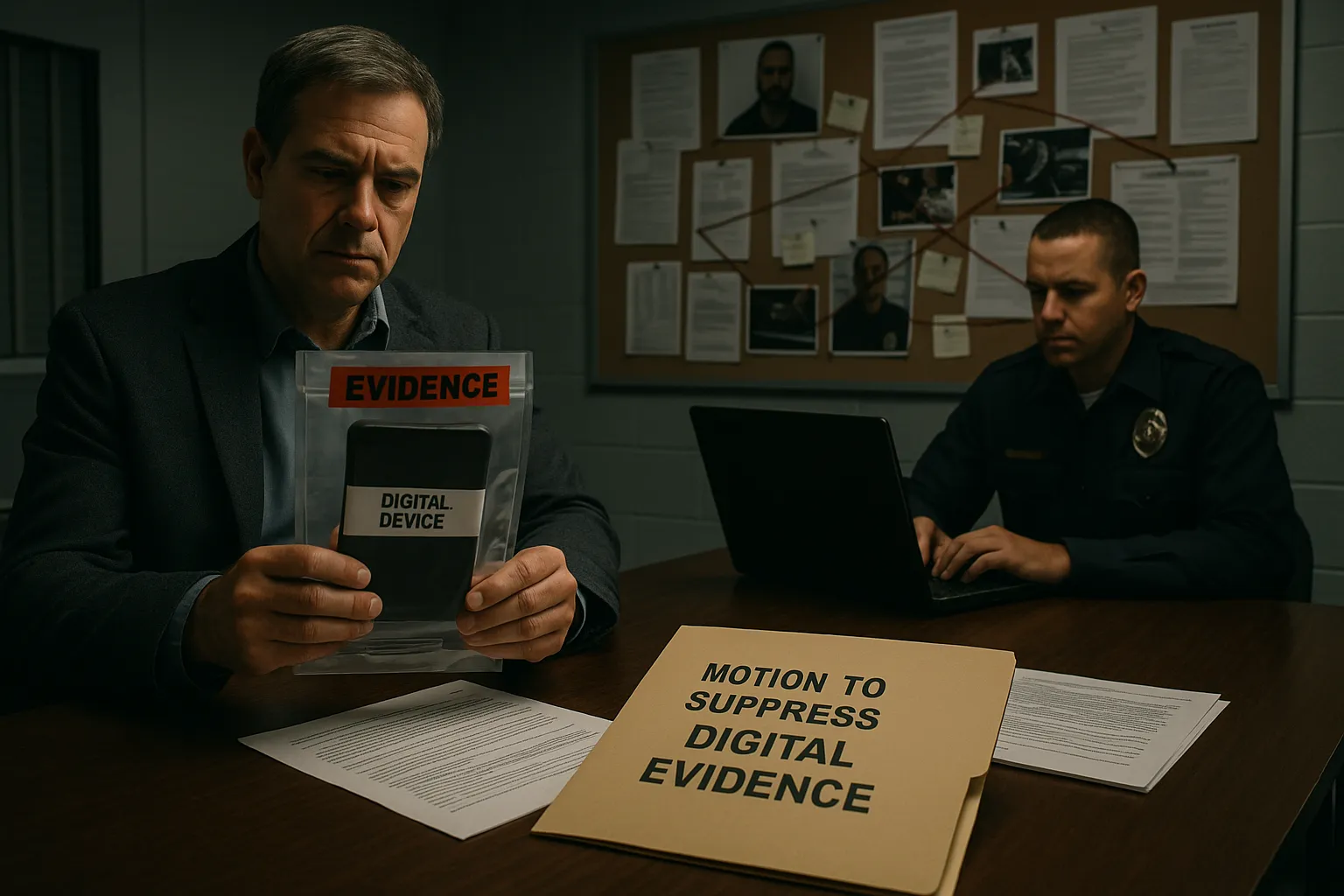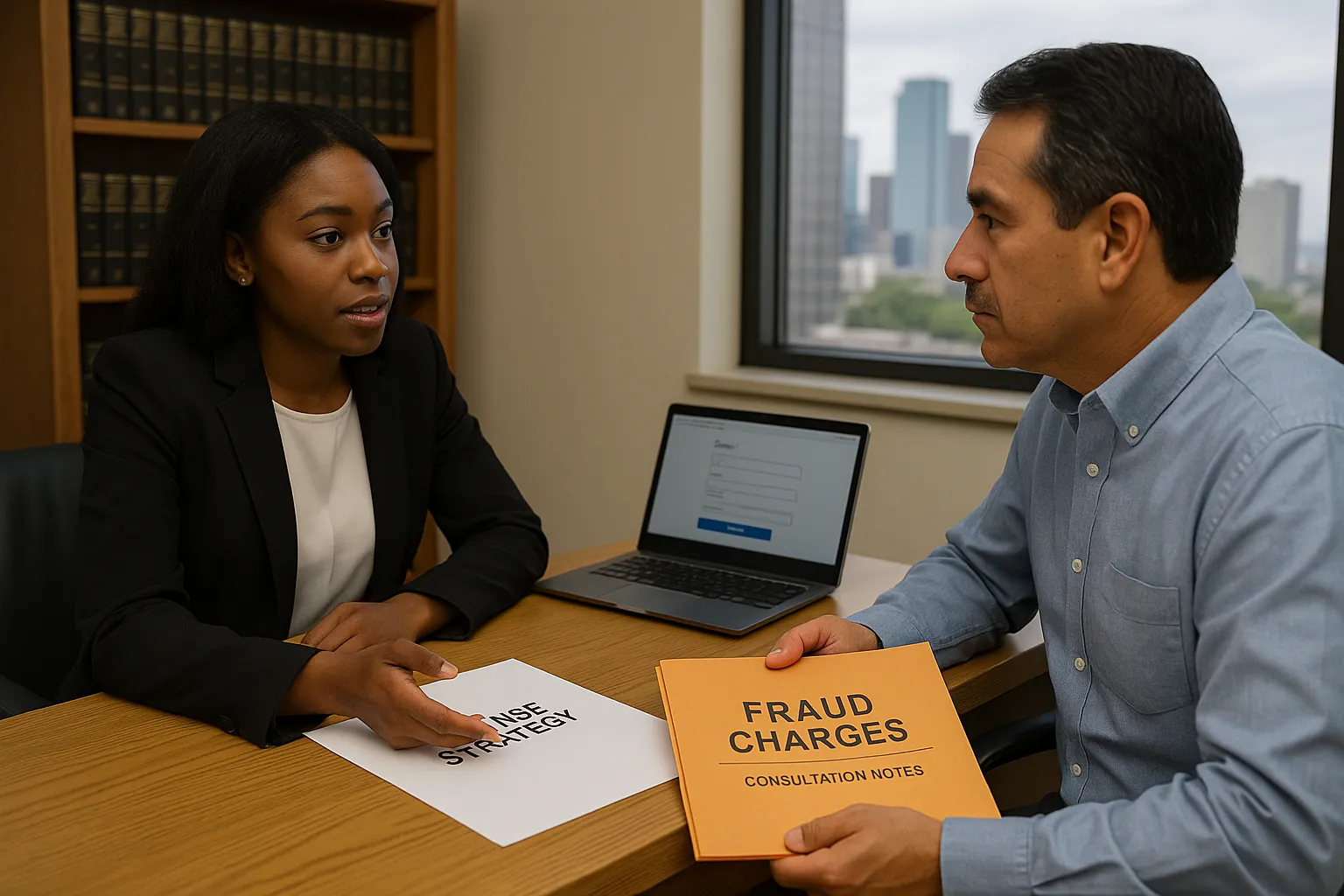

Theft & Fraud

What Is Theft and Fraud Under Texas Law? A Legal Overview
Theft and fraud are some of the most frequently prosecuted offenses in Texas, but few people understand the broad range of conduct these charges encompass. From shoplifting and embezzlement to insurance fraud and online scams, the legal consequences can be serious and long-lasting.
In this guide, we break down Texas theft and fraud laws, offering clarity for defendants, families, and anyone seeking to protect their rights across Harris, Fort Bend, Galveston, and Brazoria Counties. (See "What Is Theft and Fraud Under Texas Law?")
Legal Definitions of Theft and Fraud in Texas
Under Texas Penal Code §31.03, theft occurs when someone unlawfully appropriates property with intent to deprive the owner of it. Fraud, on the other hand, includes a broader category of deceptive practices, often defined under specific statutes like credit card abuse, insurance fraud, or identity theft.
Key components include:
- Unlawful appropriation
- Intent to deprive
- Deception or misrepresentation
(See "Types of Theft Offenses in Texas" and "Types of Fraud Charges in Texas")
Types of Theft Offenses in Texas
Texas law identifies several forms of theft, including:
- Shoplifting
- Burglary of a vehicle or habitation
- Embezzlement
- Theft of services
- Receiving stolen property
Each charge depends on the method of theft, the value of the property, and the offender’s history.
(See "Types of Theft Offenses in Texas")
Types of Fraud Charges in Texas
Fraud can take many forms. Common offenses include:
- Credit card abuse
- Forgery
- Insurance fraud
- Check fraud
- Identity theft
- Online/digital fraud
Many of these crimes fall under both state and federal jurisdiction, making experienced legal representation crucial.
(See "Types of Fraud Charges in Texas")
Penalties for Theft and Fraud Crimes in Texas
Penalties are largely determined by the value of the stolen or fraudulently obtained property:
- Class C Misdemeanor: Under $100
- Class B Misdemeanor: $100 - $750
- Class A Misdemeanor: $750 - $2,500
- State Jail Felony: $2,500 - $30,000
- Third-Degree Felony: $30,000 - $150,000
- Second-Degree Felony: $150,000 - $300,000
- First-Degree Felony: $300,000 or more
Convictions can also lead to fines, probation, jail or prison time, and a permanent criminal record.
(See "Penalties for Theft and Fraud Crimes in Texas")
How Theft and Fraud Cases Are Investigated and Prosecuted in Texas
The prosecution process typically involves:
- Gathering evidence (receipts, digital trails, witness statements)
- Reviewing surveillance or transaction records
- Determining intent through communications or financial records
Prosecutors will use this evidence to establish intent and knowledge. In complex fraud cases, investigators may work with financial analysts or forensic accountants.
(See "How Theft and Fraud Cases Are Investigated and Prosecuted in Texas")
Legal Defenses to Theft and Fraud Charges in Texas
Common legal defenses include:
- Lack of intent
- Consent from the property owner
- Mistaken identity
- Duress or coercion
- Illegal search or seizure
A defense lawyer can scrutinize every element of the case and suppress unlawfully obtained evidence.
(See "Legal Defenses to Theft and Fraud Charges in Texas")
How Theft and Fraud Convictions Affect Your Life in Texas
The consequences go far beyond the courtroom:
- Employment: Theft or fraud convictions can bar you from many jobs.
- Housing: Landlords may deny applications based on your criminal history.
- Education: Some colleges or financial aid programs may reject applicants with criminal records.
- Civil Rights: Felony convictions may limit voting rights and the right to own firearms.
(See "How Theft and Fraud Convictions Affect Your Life in Texas")
Hiring a Defense Attorney for Theft and Fraud Charges
Choosing the right attorney can dramatically change the course of your case. Look for:
- Experience with theft and fraud cases
- Trial and negotiation skill
- Familiarity with local courts
Engaging a defense attorney early can open the door to diversion programs, case dismissal, or reduced charges.
(See "Hiring a Defense Attorney for Theft and Fraud Charges")
Get Trusted Legal Support
A theft or fraud charge can damage your reputation, finances, and freedom—but you don’t have to face it alone. Mekisha Walker brings years of courtroom experience and deep knowledge of Texas criminal law to every case.
Call Walker Law Office at (713) 228-2611 today to begin building your defense and protecting your future.

Under Texas law, theft and fraud are distinct but related crimes that involve taking something that doesn’t belong to you—either through direct action or deception. Theft is defined as the unlawful appropriation of property with the intent to deprive the owner, while fraud involves intentional misrepresentation or deceit for personal gain. Both offenses carry serious consequences, from fines and restitution to prison time. In this post, we explain the legal definitions, key statutes, and real-world examples of how these crimes are charged and punished in Texas. If you’re facing allegations and need a skilled attorney near you, understanding these laws is the first step toward building your defense.
Read More...
Texas law defines theft broadly—but not all theft crimes are treated the same. From shoplifting and embezzlement to cargo theft, credit card fraud, and auto theft, each offense carries different elements, penalties, and legal consequences depending on the circumstances and the value of the property involved. In this post, we break down the most common types of theft offenses in Texas, how they're classified, and what you need to know if you're facing charges. Whether you're accused of a misdemeanor or felony, consulting with an experienced attorney near you is critical to building your defense and protecting your future.
Read More...
Fraud in Texas isn’t limited to one kind of offense—it spans a wide range of criminal acts, from credit card abuse and check fraud to insurance scams, identity theft, and government benefits fraud. Each type of fraud charge carries its own legal definition, required elements of proof, and potential penalties under the Texas Penal Code. Whether the fraud involves deception for money, property, or services, these charges are often felonies that can result in fines, restitution, and prison time. In this post, we break down the most common types of fraud prosecuted in Texas courts and explain what to expect if you’re under investigation. If you're facing fraud allegations, it’s critical to speak with an experienced attorney near you to protect your rights and mount a strong defense.
Read More...
In Texas, theft and fraud crimes carry a wide range of penalties—from minor fines to decades in prison—depending on the value of the property or services involved, the accused’s intent, and any prior criminal history. Misdemeanor offenses may result in fines or short jail terms, while felony charges can lead to steep penalties, including restitution, long-term incarceration, and lasting damage to your record. In this post, we break down how Texas law classifies these offenses, what sentencing ranges apply, and the real-world consequences you could face. If you're under investigation or already charged, speaking with an experienced attorney near you is crucial to protecting your rights and future.
Read More...
In Texas, theft and fraud cases are handled through a detailed process that begins with investigation and can lead all the way to trial. Law enforcement gathers evidence through surveillance, financial records, witness interviews, and digital data to establish probable cause. Once charges are filed, prosecutors work to build a case using both direct and circumstantial evidence to prove intent and unlawful conduct. In this post, we walk you through how these cases are investigated, what happens after arrest, and the steps prosecutors take to secure a conviction. If you're under investigation or already facing charges, a skilled attorney near you can help you challenge the case and protect your future.
Read More...
Being charged with theft or fraud in Texas doesn’t mean you’re automatically guilty—there are powerful legal defenses that may apply to your case. From lack of intent and mistaken identity to consent disputes, entrapment, or even unlawful search and seizure, the right defense can significantly weaken the prosecution’s case. In this post, we break down the most effective legal strategies used in Texas theft and fraud cases, how evidence is challenged, and what to expect in court. If you're facing accusations, consulting with a skilled attorney near you is the first step toward protecting your rights and building a strong defense.
Read More...
A theft or fraud conviction in Texas can have far-reaching consequences that go well beyond fines and jail time. From losing job opportunities and housing to facing professional license suspensions, immigration issues, and damage to your personal relationships, the ripple effects can last for years. Even after serving your sentence, the conviction may remain on your record—publicly visible to employers, landlords, and licensing boards. In this post, we break down the real-world impact of theft and fraud convictions in Texas and explain how steps like record sealing and legal advocacy can help rebuild your future. If you're facing charges or living with a past conviction, an experienced attorney near you can help you move forward with confidence.
Read More...
Facing theft or fraud charges in Texas can be overwhelming, and choosing the right defense attorney is one of the most important decisions you'll make. A skilled lawyer can assess the strength of the State’s evidence, explain your legal options, and develop a strategy to protect your rights—whether through negotiation, dismissal, or trial. In this post, we walk you through what to look for in a criminal defense attorney, questions to ask during a consultation, and why local experience matters. If you’re searching for an experienced attorney near you, this guide will help you take the first step toward a strong defense.
Read More...

